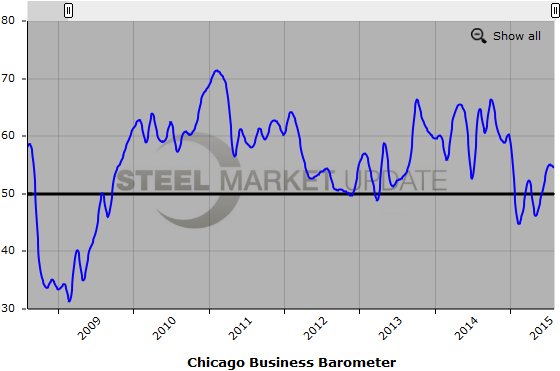Market Data

September 1, 2015
Chicago Business Barometer Steady in August
Written by Sandy Williams
The Chicago Business Barometer stayed fairly steady in August, falling from 54.7 in July to 54.4.
Chief Economist of MNI Indicators Philip Uglow said, “It was pretty much steady as she goes in August with orders and output just about holding on to July‘s gains. While the slowdown earlier in the year looks temporary, we‘re still some way below the strong growth rates seen towards the end of 2014.“
New orders and production were both weaker in August, pulling down the headline index, but were above their 12-month averages.
Inventory build-up was at the fastest pace since November 2014 In anticipation of stronger demand in Q4. Order backlogs were down slightly but supplier deliveries expanded in August.
Employment levels remained in contraction for the fourth month in a row and is not likely to see a respite in the short-term.
The jump in prices paid in the past three months dissipated and fell sharply into contraction in August.
The Chicago Business Barometer, published monthly by MNI Indicators, is a closely watched leading indicator of U.S. economic activity and is based on a survey panel of purchasing/supply chain professionals, primarily drawn from membership of the Institute for Supply Management-Chicago (ISM-Chicago). The survey panel contains both manufacturing and non-manufacturing firms, many with global operations.
Below is a graph showing the history of The Chicago Business Barometer. You will need to view the graph on our website to use it’s interactive features, you can do so by clicking here. If you need assistance with either logging in or navigating the website, please contact our office at 800-432-3475 or info@SteelMarketUpdate.com.








